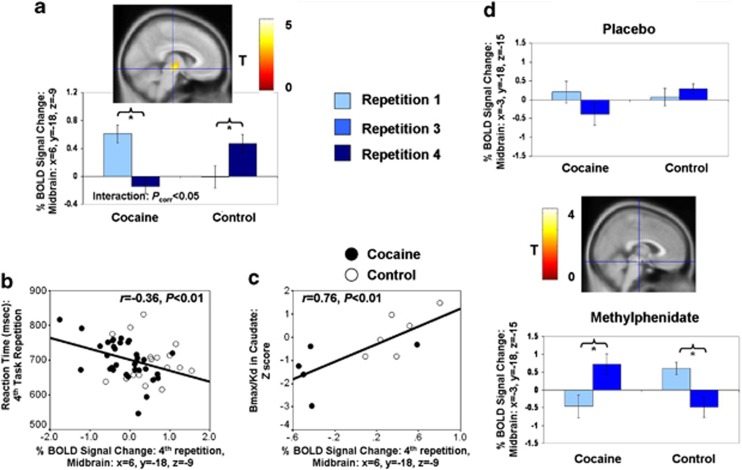Figure 3.
Midbrain response to error as a function of time-on-task. (a) More % blood-oxygenation-level-dependent (BOLD) signal change to error (compared with all correct trials) in the midbrain during the fourth task repetition in controls, but during the first task repetition in the cocaine subjects. Such higher error-induced BOLD signal change during the fourth task repetition correlated with (b) faster reaction time (RT) and (c) dopamine D2 receptor availability in caudate, as measured by positron emission tomography (PET) (one outlier was excluded; for display purposes, the scores of the cocaine subjects were standardized to the mean and s.d. of controls). (d) Midbrain responses as a function of time-on-task were reversed in both study groups during methylphenidate (note that the correct congruent baseline means that BOLD responses below zero do not necessarily indicate deactivations). Asterisks denote a significant difference between first and last task runs (repetitions).

